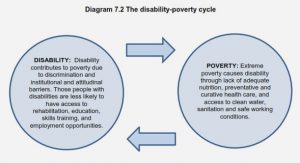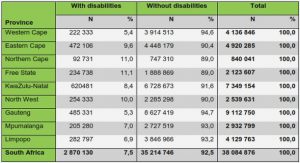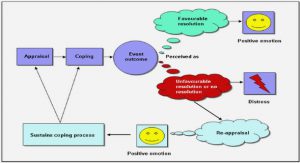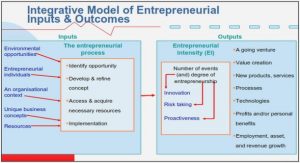Get Complete Project Material File(s) Now! »
Introduction
This chapter presents reflections in the voice of each of the participants. Data were all collected during the PGCE year of the participants and selected from their final professional portfolios. Each participant reflection here is a compilation (in chronological order) of portfolio entries I selected from their final portfolios. These are narrated by the participants 18and the entries included were chosen as representative of the full extent of entries appearing in the participant’s portfolio. These reflections are intended to highlight information, experiences and beliefs of the participants relating to their mathematics profiles and instructional behaviour profiles.
After completing the initial literature review, I decided that the four most important components that I would focus on in depicting and analysing the mathematics profiles of the articipants would be: subject matter knowledge, pedagogical content knowledge, conceptions of mathematics and beliefs about the teaching and learning of mathematics. In terms of instructional behaviour, I differentiated between traditional and reform practices on one continuum and authoritarian versus democratic experiences of teaching and learning mathematics on the other continuum. Each of these components was defined and described in chapter 2.
Marge
After a period of more than 20 years during which I often and intensely hankered to study further, I could finally do it at the start of 2006. Although I was very positive and excited about studying, I was not at all prepared for what facilitating of learning implies. My portfolio describes the self-examination that I went through. I was freed from a number of « bravade » on which my self-image and self-confidence was based at that stage. This is also explained in my portfolio.
At the start of the course, I had strong convictions about what mathematics and mathematics teaching are. I held fast to what Ernst describes as an instrumentalist view which could perhaps bend towards a plaTonic nature. I saw mathematics as a rigid body of facts, rules, laws and skills and myself as the authority and source of knowledge. I viewed mathematics teaching as the process within which solutions are explained with the single goal of being imitated.
From the moment I was confronted with having to follow a problem-centred approach in mathematics specialisation, I was sceptical and tense about it. I could not imagine how learners can construct their own mathematics. I could also not see how the greatest part of the curriculum could be presented in a problem-centred manner.
Lena
At the start of this course I thought of teaching as being a job like any other. Now I know that to become a teacher is a calling, you need to have passion for teaching and for children. I thought that the aim of education is to give learners the knowledge that they need to be successful. I have learnt that that is not the only aim of teaching, but that you also need to give the learners the life skills they need.
In the classroom itself it is always important to earn the respect of the learners by showing them respect and treating them in a fair way. It is also important to build good relationships with your learners so that they will feel relaxed and confident in your classroom. Every learning task will have a different order. In some you will first give/explain the new work and in others you will first let the learners explore and try on their own. It is a good idea to start the LT [learning task] by getting the learners attention with something unusual or interesting. Then give a quick recap of the work done in the previous period and determine the learners’ prior knowledge. In mathematics it is important to never use words like: difficult, stupid, wrong. Always motivate and encourage the learners and try to understand the reasoning of the learners
CHAPTER ONE OVERVIEW.
1.1 Introduction.
1.2 Background to the research
1.2.1 Training of pre-service mathematics students
1.2.2 South African learners’ performance in mathematic
1.2.3 Contract research project
1.2.4 Consulting the literature.
1.3 Problem Statement
1.3.1 Rationale .
1.3.2 Research Questions.
1.4 Conceptual framework
1.5 Teacher training in South Africa
1.6 Research design and methods
1.6.1 Paradigm
1.6.2 Research approach
1.6.3 Data collection strategies
1.6.4 Data analysis
1.6.5 Methodological norms
1.6.6 Ethical considerations
1.7 Limitations of the study
1.8 Outline of the study
CHAPTER TWO LITERARY FRAMEWORK
2.1 Introduction
2.2 Social constructivism
2.3 Literature review
2.3.1 Subject matter knowledge.
2.3.2 Pedagogical content knowledge.
2.3.3 Conceptions of mathematics
2.3.4 Beliefs regarding the teaching and learning of mathematics
2.3.5 Teacher’s ideology (approach to teaching)
2.3.6 Learners’ mathematics experiences (learning approach).
2.4 Conceptual Framework
2.5 Conclusion
CHAPTER THREE RESEARCH DESIGN AND METHODS
3.1 Overview
3.2 Research design
3.3 Research procedures
3.4 Research paradigm
CHAPTER FOUR PARTICIPANT REFLECTIONS
4.1 Introduction
4.2 Marge
4.3 Lena
4.4 Peta
4.5 Kapinda
4.6 Anabella
4.7 Sophie
4.8 Toni
4.9 Conclusion
CHAPTER FIVE RESEARCHER REFLECTIONS.
5.1 Introduction
5.2 Marg
5.2.1 Mathematics profile narrative
5.2.2 Instructional behaviour narrative
5.3 Len
5.3.1 Mathematics profile narrative
5.3.2 Instructional behaviour narrative
5.4 Peta.
5.5 Kapinda
5.5.1 Mathematics profile narrative
5.5.2 Instructional behaviour narrative
5.6 Anabella
5.6.1 Mathematics profile narrative
5.6.2 Instructional behaviour narrative .
5.7 Sophie
5.7.1 Mathematics profile narrative
5.7.2 Instructional behaviour narrative
5.8 Toni
5.8.1 Mathematics profile narrative
5.8.2 Instructional behaviour narrative
5.9 Conclusion
CHAPTER SIX ANALYSES OF DATA SETS
CHAPTER SEVEN CONCLUSION
REFERENCES
GET THE COMPLETE PROJECT
Pre-service teachers’ mathematics profiles and the influence thereof on their instructional behaviour






